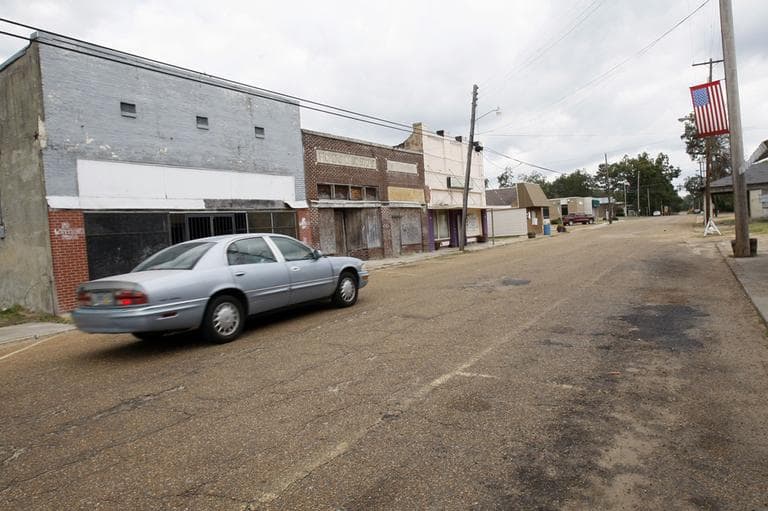Advertisement
Not Movin' On Up
ResumeIt's the American dream. But upward mobility is falling way behind Europe’s and Canada’s. What’s up?

America has always meant “land of opportunity.” Above all else, this was the country where you could get ahead. And pity old, stodgy, stuck-in-the-mud Europe. Well, look again. A wave of studies now show that upward mobility is higher in Europe than America. And not just a little higher.
Your chances of rising up are now greater in Norway, Finland, Denmark than in the USA. Higher in Sweden, Germany, France. Higher in Canada – and by a good margin. What’s gone wrong? What should we do about it?
This hour, On Point: This is core. America’s big upward mobility problem.
-Tom Ashbrook
Guests
Scott Winship, fellow in Economic Studies at the Brookings Institution, and Director of the Center on Children and Families for the Social Genome Project.
Reihan Salam, columnist for The Daily and lead writer of The Agenda blog at National Review.
Jared Bernstein, Senior Fellow at the Center on Budget and Policy Priorities and former chief economist and economic policy adviser to Vice President Joseph Biden.
From Tom's Reading List
The Occupy Wall Street movement may have put the issue on the map, but others have been talking about a decline in opportunity and equality for many years. “What we’re seeing is a combination of years of rising economic inequality in the U.S. mixed in with the tough recession and the sluggish recovery that has followed since then that has really put the issue of inequality on the map,” said Scott Winship, fellow in Economic Studies at the Brookings Institution.
And other forces are acting on the country to exacerbate inequity. There’s a relationship between the high levels of economic inequality and a lack of upward economic mobility, said Jared Bernstein, Senior Fellow at the Center on Budget and Policy Priorities. “There are many commentators, particularly conservatives, who’ve said: ‘don’t worry about inequality, we’ve got enough mobility to off-set it,’ when, in fact, we don’t.”
But the data may be more complicated. “It’s not entirely clear what the relationship between economic inequality and upward mobility is,” he said. Economic inequality has risen a lot since the 1970s, but it’s not clear that mobility has fallen over that period.”
Economic mobility should be important to all democracies, because implicit in a democracy is a social contract that promises that the country is better off together than it is in pieces, said Reihan Salam, columnist for The Daily and lead writer of The Agenda blog at National Review.
Bernstein went further, noting that the American Dream itself says that it is not only possible, but with hard work—more likely, that children will be better off economically than their parents. Recent polling shows however that people in the United States are “are now more pessimistic that their kids will do better than they did,” Berstein said.
From Tom's Reading List
Pew Economic Mobility Project "By a margin of 85 percent to 13 percent, Americans care more about financial stability than upward mobility."
The New York Times "Benjamin Franklin did it. Henry Ford did it. And American life is built on the faith that others can do it, too: rise from humble origins to economic heights. “Movin’ on up,” George Jefferson-style, is not only a sitcom song but a civil religion. "
The Atlantic "The American model has been regarded as proposing a kind of bargain. This is not Europe: Here, idleness and incompetence are sternly punished—but merit gets rewarded. Much more than elsewhere, your class background will neither prop you up nor hold you back. If you deserve to succeed, you will."
National Review "What’s the most important issue in American politics? In a narrow sense, the sputtering economy and ballooning deficits are likely to dominate the 2012 election season. But while every election has its own particular concerns, fundamentally it is to the American Dream that our politicians must tend — that libertarian and egalitarian bundle of values and hopes that transcend our partisan, economic, and social divisions."
This program aired on January 9, 2012.